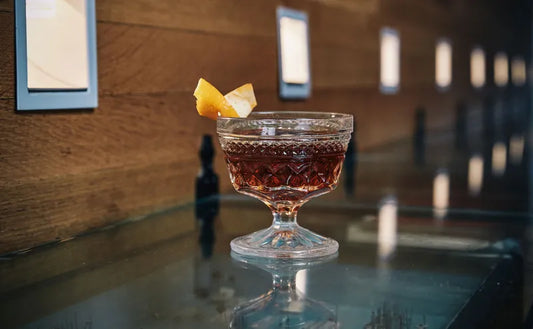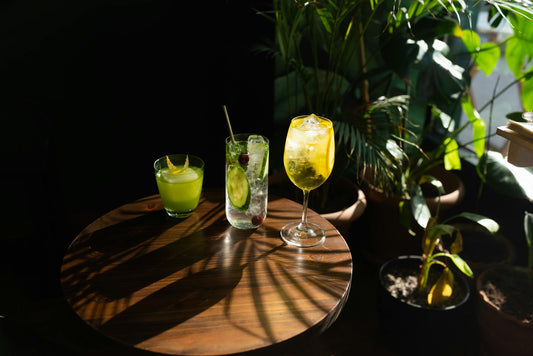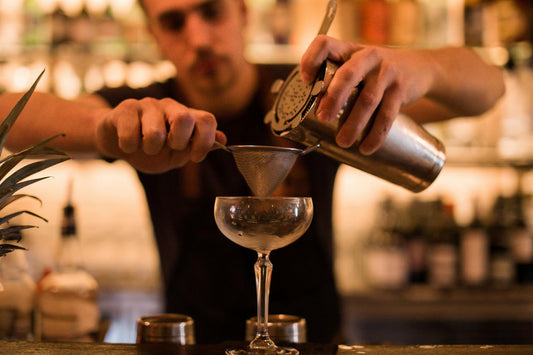Tropic Sour: Refreshing Non-Alcoholic Tropical Cocktail Recipe
SWEET to SOUR
(1-10)
STRENGTH
(1-10)
CALORIES
STANDARD
DRINKS
Note: these values are approximate and may vary dependent on the ingredients and brands you use.
More information...
Tropic Sour is a delightful non-alcoholic cocktail that captures the essence of tropical flavors while providing a refreshing and invigorating experience. This drink is perfect for those who wish to indulge in a sophisticated beverage without the effects of alcohol. The combination of ingredients creates a harmonious blend that is both sweet and tangy, making it an ideal choice for warm weather gatherings or a relaxing evening at home.
The base of the Tropic Sour is the Everleaf Mountain Non-Alcoholic Aperitif, which serves as a complex and aromatic foundation. This aperitif is crafted from a variety of botanicals, offering a depth of flavor that is often missing in traditional non-alcoholic drinks. It provides a unique herbal note that complements the fruity elements of the cocktail beautifully.
Lychee juice adds a luscious sweetness and a hint of floral notes, while pineapple juice contributes a tropical zing that brightens the drink. The freshly squeezed lime juice introduces a tartness that balances the sweetness, creating a well-rounded flavor profile. The addition of orgeat syrup, made from almonds, brings a creamy texture and a subtle nuttiness, enhancing the overall mouthfeel of the cocktail. Coconut sugar syrup adds a rich sweetness that echoes the tropical theme, while a splash of grenadine or pomegranate syrup gives the drink a lovely blush color and a touch of tartness.
The preparation of the Tropic Sour is straightforward yet elegant. To start, a coupe glass is selected and pre-chilled, ensuring that the drink is served at the perfect temperature. A garnish of a pineapple wedge or an edible viola flower not only adds visual appeal but also hints at the flavors within. The ingredients are then shaken with ice, allowing them to meld together and chill thoroughly. Finally, the mixture is fine strained into the chilled glass, resulting in a smooth and refined cocktail that is visually stunning.
With only 150 calories and a mere 0.05% alcohol by volume, the Tropic Sour is a guilt-free indulgence. It is an excellent option for those who are mindful of their alcohol intake or for designated drivers who still want to enjoy a sophisticated drink. The low alcohol content means that it can be enjoyed at any time of day without the worry of overindulgence.
The taste of the Tropic Sour is a delightful journey from sweet to sour, with the initial sweetness of the lychee and pineapple giving way to the tartness of the lime. The nutty undertones from the orgeat and the richness of the coconut sugar syrup create a layered flavor experience that is both refreshing and satisfying. This cocktail is not just a drink; it is an experience that transports you to a tropical paradise with every sip.
In a world where non-alcoholic options are becoming increasingly popular, the Tropic Sour stands out as a creative and flavorful choice. It showcases how non-alcoholic cocktails can be just as complex and enjoyable as their alcoholic counterparts. Whether you are hosting a summer party, enjoying a quiet evening, or simply looking to treat yourself, the Tropic Sour is sure to impress and delight.



